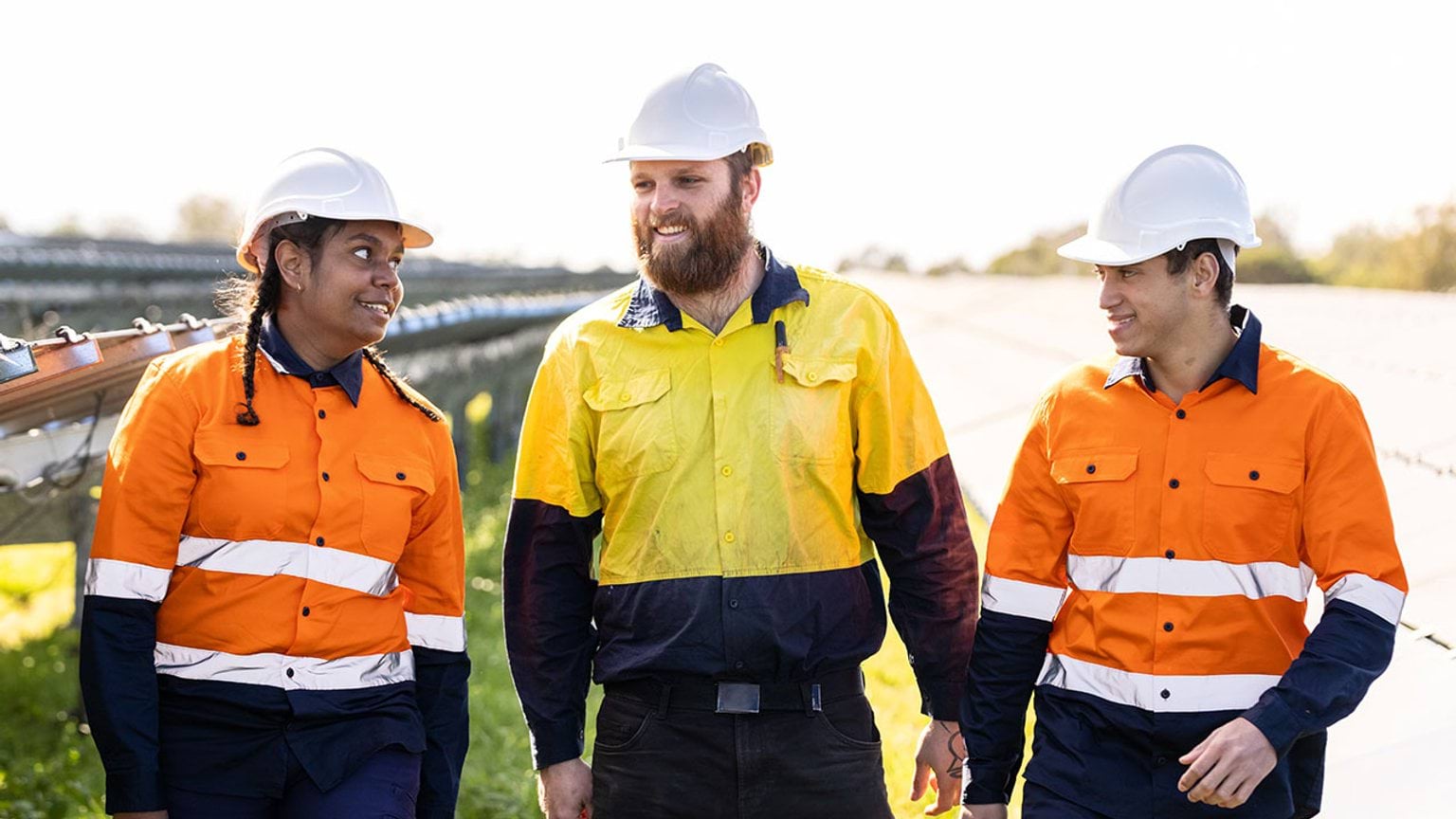Building inspectors make sure buildings abide by local laws. More jobs for building inspectors are being created in Victoria.
Find out what a building inspector does and the related Vocational Education and Training (VET) courses and pathways you can take to secure a job.
What is a building inspector?
Building inspectors make sure construction projects follow rules and regulations. They review projects and work with developers. They give advice on what needs to change. They may also oversee the set up of plumbing and electrical systems.
Find out more about building inspectors(opens in a new window) and these related jobs on the Victorian Skills Gateway(opens in a new window):
- building associate(opens in a new window)
- construction estimator(opens in a new window)
- construction project manager(opens in a new window)
- construction rigger(opens in a new window)
- electronic engineering technician(opens in a new window)
- natHERS assessor(opens in a new window)
- scaffolder(opens in a new window)
- surveyor’s assistant(opens in a new window).
Related training courses
Explore these related TAFE and training courses on the Victorian Skills Gateway(opens in a new window):
- building inspector(opens in a new window)
- building and construction(opens in a new window)
- civil construction(opens in a new window)
- surveying(opens in a new window)
- workplace health and safety(opens in a new window).
You may be eligible for government funding to help pay for your course.
Median salary
The median weekly earnings for architectural, building and surveying technicians in Australia is $2,115.
Source: Jobs and Skills Australia(opens in a new window)
Note this salary is current as of January 2025 and is indicative only. A range of salaries apply to different roles across the industry.
Job demand in Victoria
Below are the employment projections for architectural, building and surveying technician jobs in Victoria. Figures show the number of workers in 2024 and the new workers expected to enter the workforce by 2027 and 2034.
‘New workers expected’ accounts for workers adding new jobs to the economy and replacing retirees over the next 3 and 10 years. These projections are estimates only. There will be additional jobs available as people move between jobs and industries.
Specific data is not available for building inspectors.
| Region | Workers 2024 | New workers expected by 2027 | New workers expected by 2034 |
|---|---|---|---|
| Victoria | 22,073 | 3,733 | 7,826 |
| Melbourne – inner metropolitan | 4,763 | 861 | 1,829 |
| Melbourne – inner south-east metropolitan | 1,661 | 244 | 467 |
| Melbourne – southern metropolitan | 3,414 | 589 | 1,149 |
| Melbourne – northern metropolitan | 2,455 | 450 | 1,012 |
| Melbourne – eastern metropolitan | 2,930 | 463 | 915 |
| Melbourne – western metropolitan | 2,652 | 597 | 1,297 |
| Ballarat and surrounds (Central Highlands) | 556 | 92 | 164 |
| Bendigo, Echuca and surrounds (Loddon Campaspe) | 645 | 57 | 156 |
| Geelong, Colac and surrounds (Barwon) | 1,211 | 241 | 429 |
| Gippsland | 745 | 50 | 184 |
| Horsham and surrounds (Wimmera Southern Mallee) | 73 | <10 | 18 |
| Mildura, Swan Hill and surrounds (Mallee) | 143 | 19 | 33 |
| Shepparton, Seymour and surrounds (Goulburn) | 308 | 15 | 56 |
| Wangaratta, Wodonga and surrounds (Ovens Murray) | 347 | 19 | 78 |
| Warrnambool, Hamilton and surrounds (Great South Coast) | 169 | 28 | 40 |
Source: Victorian Skills Authority Employment Projections Dashboard
Resources to plan your next steps
Visit our construction industry profile to find out about:
- what it’s like to work in construction, and some of the jobs you could do
- training and skills to work in the industry, and financial assistance to help pay for your course
- help getting a job in construction, and industry job projections for Victoria
- other free resources and advice to plan your training and career.
Explore growing industries in your region
Updated



